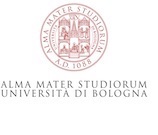BRETT NEILSONThe City of OperationsAFTERNOON COURSE (Aula Fumagalli)
|
|
|
To what extent does the city function as the political container of twenty-first century operations? Discourses of postcolonial critique and planetary urbanism have questioned bounded visions of city and stressed the need to consider the relational multiplicities, diverse histories, and dynamic connectivities of global urbanisms. However, the question of how political models of civil society and citizenship, constitutive to the Euro-American understandings of the city, cross the operative dimensions of urban life remains open. The course will interrogate this question by drawing on the findings of three research projects conducted across the cities of Shanghai, Kolkata, Athens, Valparaíso, Hong Kong, Singapore and Sydney. Dubbed Transit Labor, Logistical Worlds, and Data Farms, these projects have investigated urban transformations through collective empirical studies of sites such as shipping ports, recycling villages, circuit board factories, new towns, special economic zones, logistical corridors, copper mines, and data centers. The course will explore the relevance of this research for changing conceptions of the urban, debates on the relation between cities and capital, and the question of what kind of political subject emerges in the twenty-first century city. Class One: After the Global City In recent decades, attempts to theorize or codify urban transformations have led to a mode of concept production that places a series of different adjectives before the word city. Some of the most prominent examples are the global city, the postcolonial city, the creative city, the sustainable city, the smart city, and the resilient city. In reviewing the debates and material changes that have prompted this concept production, this lesson suggests that such a proliferation of adjectives masks and displaces the growing inadequacy of the very notion of the city for a rigorous analysis of urban transformations. Shifting the focus instead to the concept of operations, I suggest that attention to the workings of finance, logistics, and extraction across diverse geographical scales is germane to analysis of how urban sites and contexts shift in relation to planetary transitions, technological power, and global movements of capital. Class Two: Urban Infrastructure In his landmark text The Urbanization of Capital (1985), David Harvey argues that capitalist accumulation and the production of urbanization go hand in hand. In the wake of the uneven waves of crisis that have unfolded since 2007, this class revisits Harvey’s thesis that capital switches to the production of the urban environment as a means to avoid crises of overaccumulation. I draw on arguments that suggest that urban infrastructures are something more than fixed capital to highlight their connections to operations of capital, patterns of violence, and social logics that make twenty-first century urban landscapes critical junctures for transnational arrangements of infrastructure. The lesson will draw on my experiences in coordinating the projects Logistical Worlds and Data Farms to suggest that such arrangements connect labor forces within and across urban spaces in ways that increasingly question the dominant metaphors and models we have for explaining global mobilities: the supply chain and the production network. Class Three: Who is the Subject of Operations? This class will engage with urban struggles that have unfolded in and across diverse sites since 2011 to ask what type of political subject emerges in the twenty-first century city of operations. Focusing on struggles connected to logistics industries, global finance, and different forms of extraction, I question the focus on civil society and citizenship in many accounts of urban politics. This questioning encompasses arguments that suggest that popular politics in many parts of the world do not function through civic claims. I extend these arguments to contemporary accounts of the smart city that call for the mustering of civic virtues of inclusion, participation, and engagement in the face of patterns of ownership, governance, and knowledge production that favor big information firms. By arguing that operations imply a politics where the civic and the corporate work in tandem, I suggest the political subject of the twenty-first century city must move beyond scripts of citizenly intervention.
|





 Brett Neilson
Brett Neilson